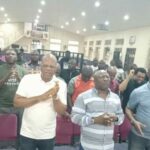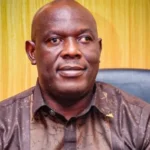Stakeholders in the telecommunications industry have stated that the Federal Government’s plan to deploy 90,000 kilometers of fiber optic cables across the country will face several obstacles, especially from state governments, which might truncate the project.
According to them, without addressing the current issues of Right of Way (RoW) charges, multiple taxation, and levies, which are under the control of state governments, the project, which is to be implemented through a Special Purpose Vehicle (SPV), would be an exercise in futility.
The stakeholders, who spoke during the Sixth Edition of the Policy Implementation Assisted Forum (PIAFO) in Lagos last week, focused on Nigeria’s renewed strategic agenda for the digital economy.
They stressed the need to ensure the successful implementation of the project, which was recently announced by the Federal Government to complement existing connectivity for universal internet access across Nigeria and provide the Nigerian digital economy with the backbone infrastructure it needs.
Presenting a paper on the topic, ‘Harmonising Nigeria’s Fibre Deployment Strategies for Effective Implementation,’ Executive Director of Broadbased Communications, Mr. Chidi Ibisi, said while the government’s SPV initiative is a good plan that could help the country bridge its current digital infrastructure gap, the government would need to address current challenges.
“The issues of high cost of Right of Way (RoW), destruction of fiber by road construction companies, and vandalism all need to be addressed for this new SPV initiative to be successful,” he said.
Highlighting some of the challenges telecom operators face when deploying infrastructure, the Group Chief Operating Officer of WTES Projects Limited, Mr. Chidi Ajuzie, said the biggest challenge to fiber cable laying in Nigeria is the informal RoW by hoodlums in states.
ALSO READ: LG Autonomy: Ebonyi community rejects caretaker, requests election
“For states, a formal right of way is set and some states are adopting it, but the informal side of the right of way is where the complexity has arisen today.
If I’m trying to lay fiber in some communities here in Lagos, the first thing that happens is the so-called landowners (omo onile) come out, and a different set of people will keep coming from one street to another and they charge you. How do we achieve adequate broadband infrastructure in this kind of situation?” he said.
According to the Chairman of the Association of Licensed Telecommunications Operators of Nigeria (ALTON), Mr. Gbenga Adebayo, for the 90,000 kilometers fiber project to succeed, the state governments have to take ownership.
“For the project to succeed, I think the governments at sub-nationals should take ownership. This issue of state governments seeing right of way as IGR should be a thing of the past.
We can’t talk about the digital economy on one side and the government seeing those who provide the services as sources of revenue.
“The government has always come up with good policies, but the implementation, particularly when they are tested far afield, is the biggest problem. Governors will go to Abuja and say, ‘in my state, I will give the right of way free of charge.’
When you go to such a state, they may give you the right of way for zero or one Naira, but they will give you developmental levy, education levy, state impact levy, ecosystem levy. When you add all of these together, it is more than the right of way charges. So, who is playing who?” he said.
Making vital contributions at the forum, Dr. Ayotunde Coker, the Chief Executive Officer of Open Access Data Centre (OADC), stressed the need for the fiber project to be executed by the private sector, even as the World Bank is expected to fund it with up to $3 billion.
He said: “The World Bank can put money into the government, but it needs private sector partnerships as the execution engine, and that’s what we’ve been pushing in Africa.
The key thing is that when the World Bank puts the money in, it should engage the private sector, figure out the policies that it needs to implement, and enable the private sector to execute them effectively and make it as open as possible. With that, they can achieve what they are trying to achieve.”
He further stressed that for the success of the project, Nigeria should learn from past failures to achieve the new broadband penetration targets with the fiber range that is required.
“Meaningful broadband is what we need, rather than just a huge set of megabits per second implementation. We need superhighway fibers. We need the distribution of these backbones that allow us to then fan out.”
Earlier in his opening address, the convener of PIAFO, Mr. Omobayo Azeez, said the conference was to create a midpoint dialogue platform for digital economy stakeholders across both the public and private sectors to brainstorm, exchange perspectives, clear grey areas, harmonize thoughts, and create a sense of collective responsibility towards accelerating our collective prosperity through technical efficiency.






